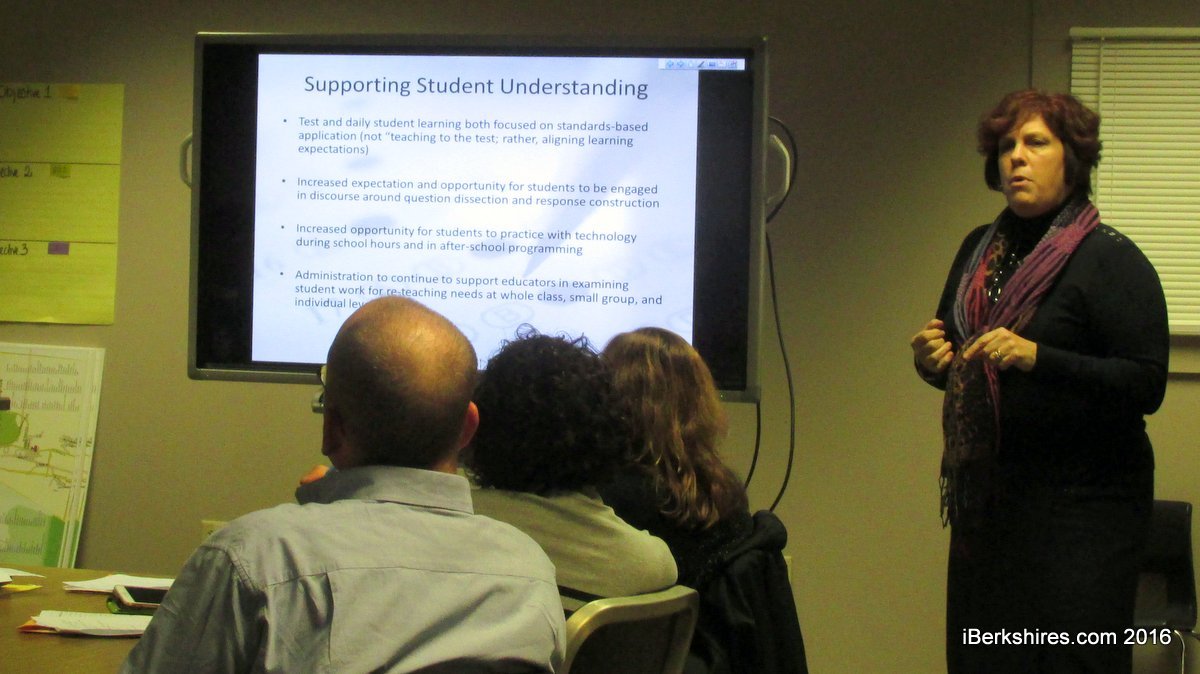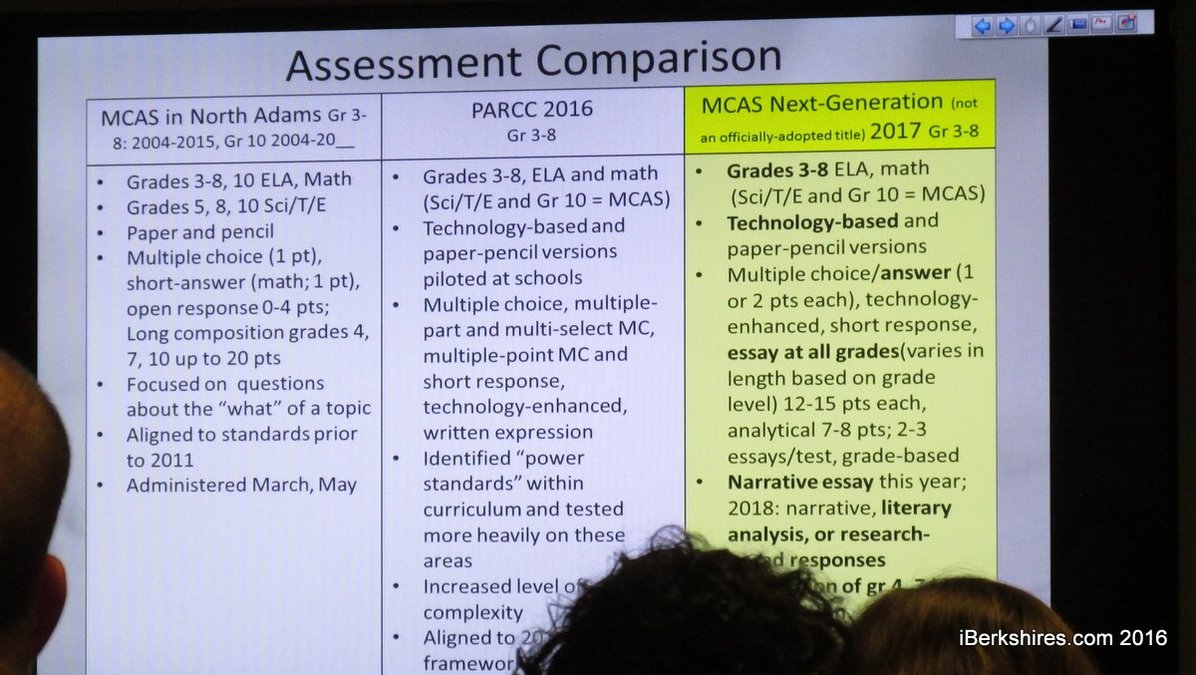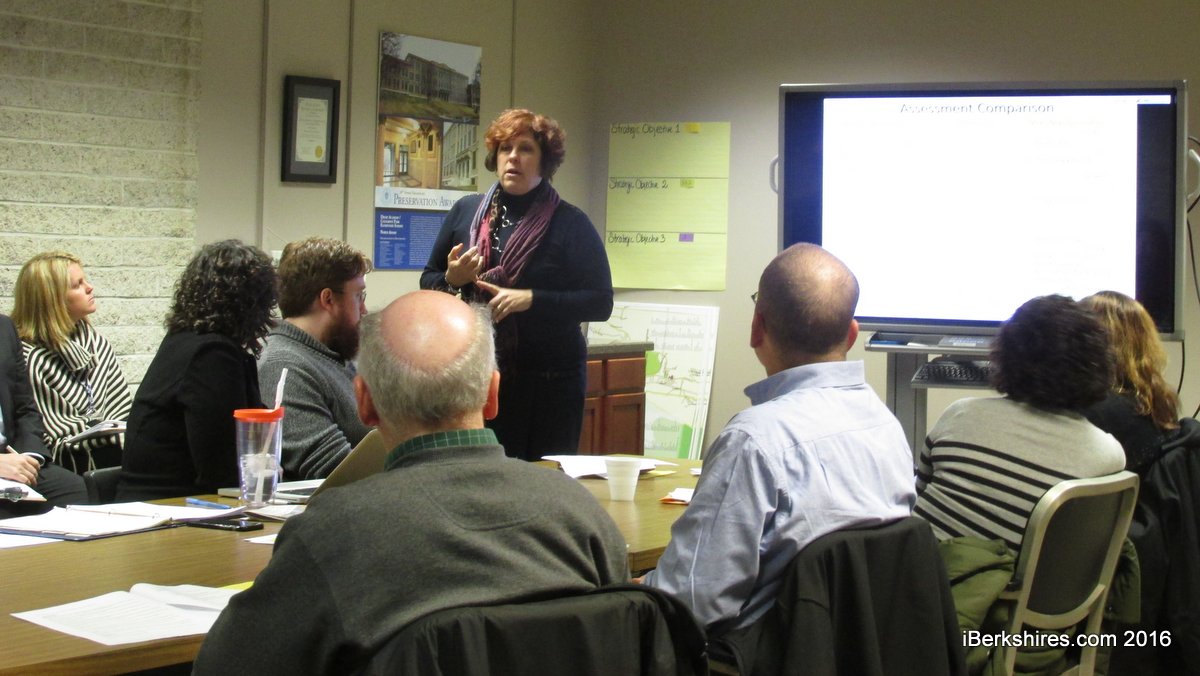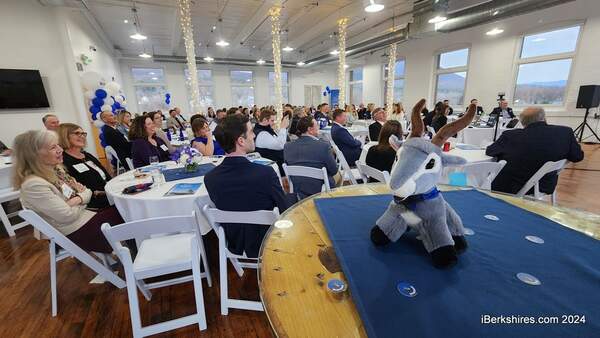

North Adams Schools Preparing for Standardized Testing

NORTH ADAMS, Mass. — The state Department of Education doesn't know what the new standardized tests will be called.
MCAS 2.0? MCAS the "New Generation?" The "Next Generation?"
While they might not know the name, educators are preparing for a version of the 20-year-old Massachusetts Comprehensive Assessment System that will be more in-depth and more complex than ever before.
"Sometimes the upgrades are really minor, and you as a user might not even notice what has actually changed," Superintendent Barbara Malkas told the School Committee on Tuesday. "This is not one of those situations."
MCAS 2.0 is expected to be a very different assessment from the original MCAS, and while being described as PARRC-like, she said, "it is not PARCC-lite."
Schools had been offered the option over the last couple years to participate in pilot testing of the Partnership for Assessment of Readiness for College and Careers standardized tests.
The state has been a founding leader in the consortium developing PARCC. Elementary and Secondary Education Commissioner Mitchell D. Chester said in November 2015 that the state would transition to a next-generation MCAS heavily influenced by PARCC.
The first pilot testing for the MCAS 2.0 is this coming spring with implementation of the online testing statewide in 2019. Grades 3-8 and 10 will all be tested on the new English and math; Grades 5, 8 and 10 will continue with the older science, technology and engineering this year.
Kimberly Roberts-Morandi, director of curriculum, instruction and assessment, said districtwide preparation is taking a two-pronged approach - preparing students for both the complexity of the testing and the technological needs.
"The test is reflective now of this increased level of complexity and standards and what the students are being asked to do, so the teaching needs to also focus on this level of complexity on these standard-based questions," she said. "So we really have to make sure we have alignment between what's happening every day in the classroom because that's where the magic is happening."
Participating grades will have practice sessions prior to the implementation of the test in May and instructional packets are being prepared for leadership teams and teachers. The summary for Grade 3 alone is seven pages, she said.
Where MCAS focused on single multiple choice selections and short answers, along with some essays, the new test will take off from the PARCC standards of multiple choice questions that have more than one answer, more in-depth problem-solving and more demanding essays at all levels.
"One of the big things we saw was the increased level of complexity ... depth of knowledge was also something you really had to be concerned with," Roberts-Morandi explained. "PARCC took the 'what' that we had in MCAS and really started to ask the 'why.''
Students will not only be asked to solve problems but also to show how they came to their conclusions, which is going to be a focus of MCAS 2.0.
"In the past we had extensive writing in Grades 4, 7 and 10; now all students in Grades 3 through 8 under the new MCAS will be writing essays," she said. "Grades 3 and 4 will be writing less ... they're looking for one to two pages in the essay response. Grades 5, 6, 7 and 8, two to four pages. If it's online, there will be blocks that the students will be typing their responses in. They're not looking for it to exceed that response area."
Written responses will also be graded on punctuation, spelling and grammar, which was not the case in the past. There will be two to three essays per test depending on grade.
Grades 4 and 8 will be taken online; the other grades will have an option for paper and pencil but the state will be transitioning all grades online, with two added each year. That means students will have to become comfortable with the digital version and "technology enhanced questions."
"If you were taking the online test you might have to highlight specific areas, you were dragging and dropping, you were doing work with the technology," Roberts-Morandi said. "So that became a factor we had to prepare for."
The schools have done some dry runs with typical tests to ferret out any glitches or technical issues. The district's network administrator Moty Nevo has been working with instructors to ensure that enough laptops, power cords and other equipment is available.
A focus will be placed on the practice tests being taken by Grade 8 since it's the biggest class.
"They're going to be watching the bandwidth, they're going to be watching what happens to the system, how the machines are working, interacting," Roberts-Morandi said. "We're going to be looking at how the students are handling the technology pieces of it and how they're taking apart the questions so we can do some troubleshooting between now and May when they have to take these tests. ...
"Test environment replication and observation during these practice tests are going to be really important ... we've got to know how this entire environment interacts."
Schools in this first round of testing will again be "held harmless" — their overall scores were not counted against them — but their percentiles will be calculated. Schools may go up levels, but not down.
"I'm just seeing so much forward momentum going and I would hate to see something like this suck the wind out of the sails of our administrators, our staff, our students at some level," said Mayor Richard Alcombright, chairman of the committee. "I'm very hopeful and positive that maybe the first year is tough, the second year levels out."
Roberts-Morandi said a new test is unpredictable and she's seen school districts rise and fall.
"I think that's part of our being mindful of what's going on day to day in the classroom, too, because that is the best preparation any student can have for anything," she said.
In other business, the North Berkshire special education collaborative concept is moving forward with the development of a project coordinator position to be funded out of a $148,000 state grant received this past fall. Malkas said the hope is to have a candidate in place by the end of the month who can start on the special needs assessment and locate a site for the services.
Tags: MCAS, standardized testing,















